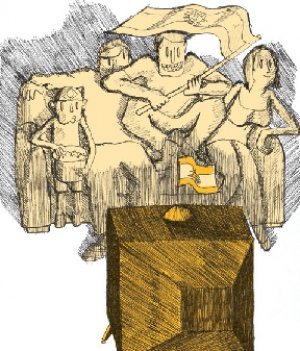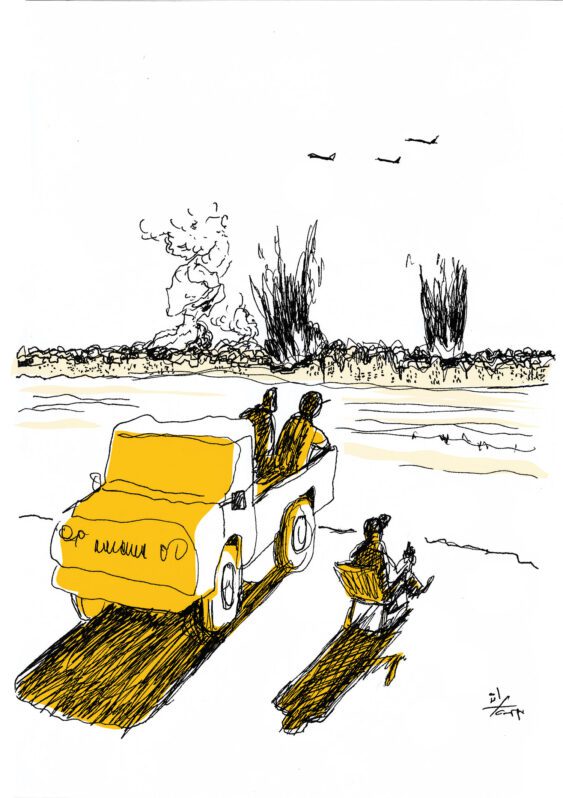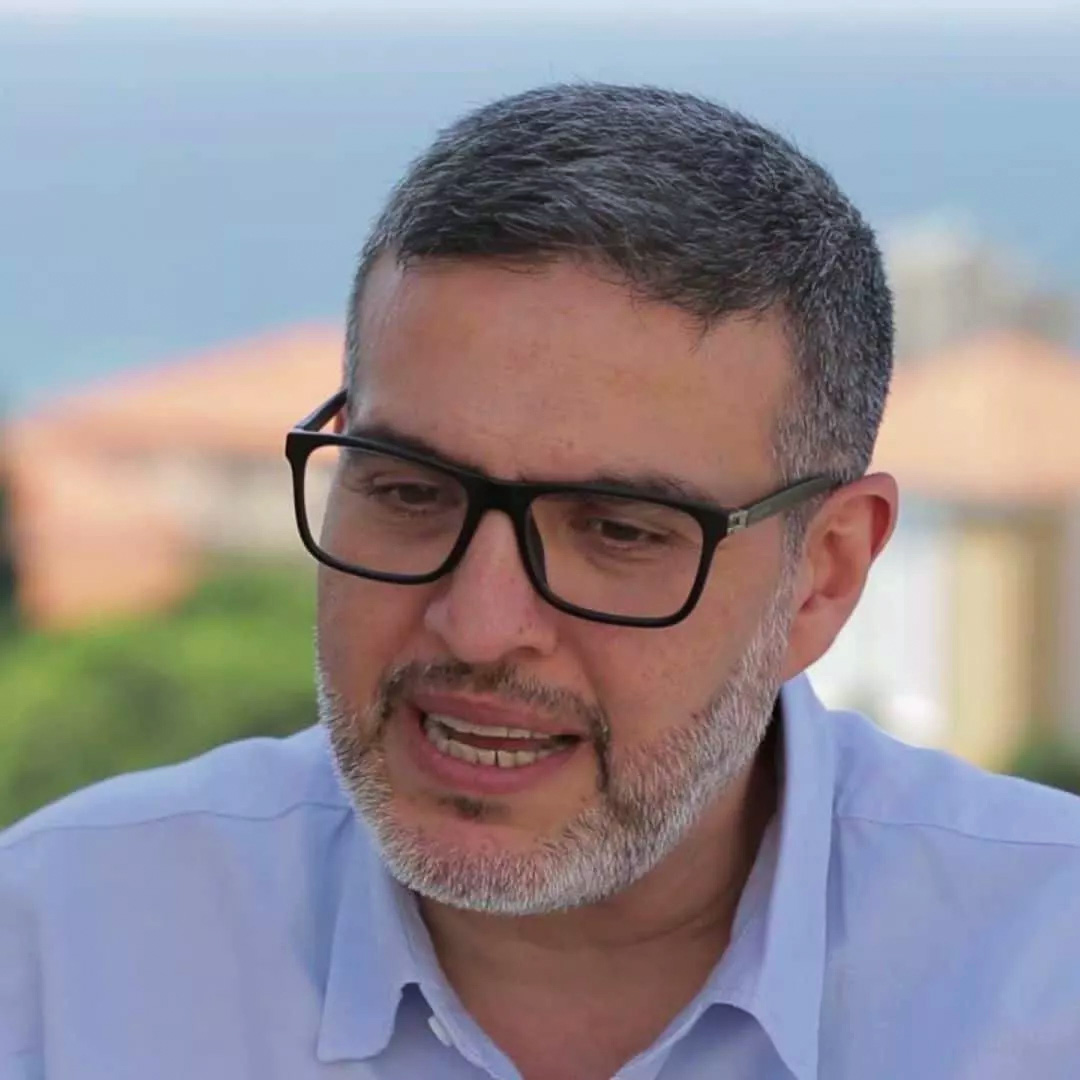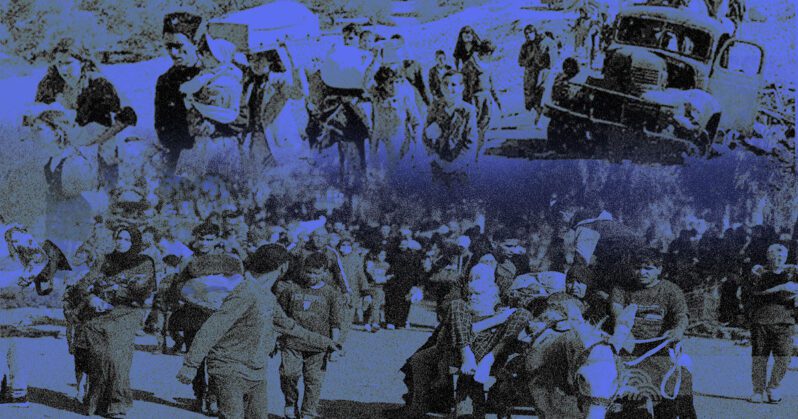Broadcasting World Cup Matches: The State’s Duty Not to Discriminate

Lebanon was one of the few countries in which broadcasting the matches of the football World Cup was marred by judicial disputes. The first judicial ruling issued on the matter was unopposed, upon the request and in favor of the representative of the company holding exclusive broadcasting rights. In contrast, the second ruling was issued within the framework of a confrontation between exclusive rights holders and [government-owned television network] Télé Liban , after citizens spontaneously sided with the latter. Unlike the first ruling, the second placed limitations on exclusive rights. The first ruling was issued on June 13, 2014 and the second on July 4, 2014 by two different judges, both holding the position of Summary Affairs Judge in Beirut.
The judicial discussion over the right to broadcast these matches raised problematic issues that far exceeded the concerns of football fans, taking the form of an all-encompassing citizenship issue. The discussion revisited some of the issues of the legal debate taking place in Europe, most prominently the extent to which citizens have the right to be informed about what has become a major event (événement majeur) in public cultural life. It also developed its own characteristic features, in light of the open debate over the extent of the state’s commitment to guarantee such a right to everyone without discrimination. This was after the Lebanese state became party to a contract of which the application is ambiguous, notably in terms of which segments of society should benefit from it.
How should such a contract be interpreted? Should it be interpreted exclusively on the basis of its text and of the intention expressed by its parties when formulating it, even if this leads to discrimination among citizens? Or should the state’s presumed intention also be taken into consideration, even if it differs from its declared intentions? Choosing the latter option would inevitably lead to interpreting the contract as having been formulated for the benefit of all Lebanese without exception. Owing to such questions, the issue of the World Cup turned into an opportunity for both the Lebanese state and major commercial corporations to stare at the reflection [of their relations with the public]. Corporations have indeed often taken advantage of the state’s tendency towards favoritism, corruption and discrimination, in order to secure interests opposed to those of the general public as I discuss below.
How Did the World Cup Turn Into a Citizenship Issue?
The story began when a Qatari group, beIN Sports, obtained exclusive rights to broadcast World Cup championship matches in countries of the Middle East and North Africa. Some Lebanese state officials including former President Michel Suleiman, along with the administration of Télé Liban, sought to obtain rights to broadcast through the latter. A few hours before the start of the championship, it became clear that their attempts had failed.
It thus seemed to the Lebanese and other residents of Lebanon that the only way to watch these matches was to subscribe to the special service offered by the local Sama cable company. Sole agent of the beIN Sports group in Lebanon, Sama, provided this service for prices ranging between LL (Lebanese pounds) 150,850 [US$100] and LL452,550 (US$300) depending on the area. This represented a major obstacle to watching the championship for hundreds of thousands of Lebanese.
When some cable providers were able to allow their subscribers to watch the matches on French channel TF1, Sama – the representative of the exclusive rights holders in Lebanon- took action. The company obtained a ruling from a Summary Affairs Judge in Beirut banning TF1 in order to protect Sama’s exclusive rights imposing heavy fines on violators. A striking feature of this ruling was that it included all cable providers in Lebanon, most of which still operate illegally. Banning them from broadcasting TF1 thus seemed tantamount to legitimizing their activities in general.
The Lebanese State Intervenes to Ensure the Right to Watch Free of Charge
After cable subscribers were deprived of World Cup matches, Telecommunications Minister Boutros Harb (a serious candidate for the presidency), intervened to save the day. Using the revenue of state-owned mobile network operators, his ministry would sign a contract with the Sama cable company. For US$3 million, the latter would allow the Lebanese (or a broad segment of the Lebanese population) to watch the matches free of charge. Prior to it being struck, the deal was announced at a press conference in which speeches stressed the Lebanese people’s right to watch the World Cup. Information Minister Ramzi Jreij, for instance, went as far as to elevate the latter to the rank of rights granted by the Constitution. In his view, it derived from a set of rights consecrated by the International Covenant on Economic, Social and Cultural Rights, which represents an integral part of the Lebanese Constitution as per its Preamble.
The contract stipulated that this right would be ensured through cable providers present on Lebanese soil, but made no mention of Télé Liban. Nonetheless, the chairman of the state-owned network, Talal Makdessi, announced that he would be broadcasting the matches in order to allow all the Lebanese to watch them. He argued that those subscribed to cable providers (most of which are illegal) represent less than 40% of the Lebanese population. In response, beIN Sports filed a lawsuit against Makdessi before a Summary Affairs Court to prevent him from broadcasting the World Cup, in clear violation of the Qatari corporation’s exclusive broadcasting rights.
Citizens Intervene to Defend Their Rights
During the second court session, the parties to the lawsuit were surprised by a request for intervention filed by a number of citizens. Residing in remote areas of Lebanon where cable subscriptions are not available, the latter demanded that the case be dismissed and their right to watch the World Cup be respected. Aside from invoking such a right, they raised a central issue concerning the contract signed by state-owned companies upon the initiative of the Ministry of Telecommunications. The right to benefit from this contract, they argued, could not be restricted to a particular segment of the Lebanese population (cable subscribers), especially as the amount paid came from public funds collected by these companies on behalf of the state. They expressed a similar opinion about the mention of cable providers in the contract, considering it to represent merely one of the means to implement the latter. The parties to the contract, they argued, should be required to agree over other means of implementation if this one proves insufficient to achieve its goal, by virtue of the principle of cooperation and good faith between the contracting parties.
Beyond invoking statements or a few mentions in the contract about the rights of all Lebanese without exception, they argued that this contract should be interpreted on the basis of the state’s presumed intention. In view of the public interest the latter represents, this would inevitably lead to an interpretation similar to theirs. To strengthen their position before the judge and public opinion, they also demanded that the contract’s signatories be considered complicit in conspiring against public interest, if their contract was found to be discriminatory. The case should then be referred to the Financial Public Prosecution to investigate the use of public funds in favor of a particular segment of the Lebanese population.
If the consequences of discrimination are then so grave, as they indeed are, it would be theoretically unlikely for a cabinet minister and the CEOs of major corporations to get involved. It would therefore be difficult for the judge to reach such a conclusion. In light of this, it would perhaps be less damaging for the plaintiff company to avoid the losses that might result from the contract being considered non-discriminatory, than to suffer the losses that might result from the alternative.
Accordingly, the Summary Affairs judge eventually dismissed the case against Télé Liban on the basis of the ambiguity surrounding the application of the contract, after mentioning the statements made by each party. The obscurity surrounding the contract’s interpretation and the constitutional nature of the right to watch World Cup matches featured prominently in the case. The judge thereby declared that the right the contract gives Lebanese citizens is ambiguous and unclear, and that it does not fall within her jurisdiction as a Summary Affairs judge to settle such an ambiguity. As per the Code of Procedure in effect, such a decision would have to be made by a judicial court (i.e., a non-summary court). As a result, and on the basis of the demands of citizens, the judge held up a sort of mirror in the face of the state. Meanwhile, she avoided delving into the nature of the right [given by the contract], the extent of its constitutional nature, and the extent to which it contradicts the notion of exclusive rights.
The State Forced to Face Itself
Perhaps the most important outcome of this case was the novel interpretation it entailed of the state’s administrative work. Aside from its direct understanding of the latter, such an interpretation, above all, addresses what the state is required to do or the rights it is meant to provide. As a result, the concept of the state departs from being a theoretical or idealistic notion that should be aspired to. Instead, it becomes an effective tool to accordingly reinterpret and restructure reality, including what it would entail in terms of affecting the latter and deterring violations. This was perhaps a unique moment during which what is right prevailed over what was taking place de facto. Such a moment paves the way for a stronger stance in future World Cup championships, or on similar occasions of paramount importance for ordinary Lebanese.
This article is an edited translation from Arabic.
Mapped through:
Articles, Inequalities, Discrimination and Marginalisation, Lebanon
Related Articles



